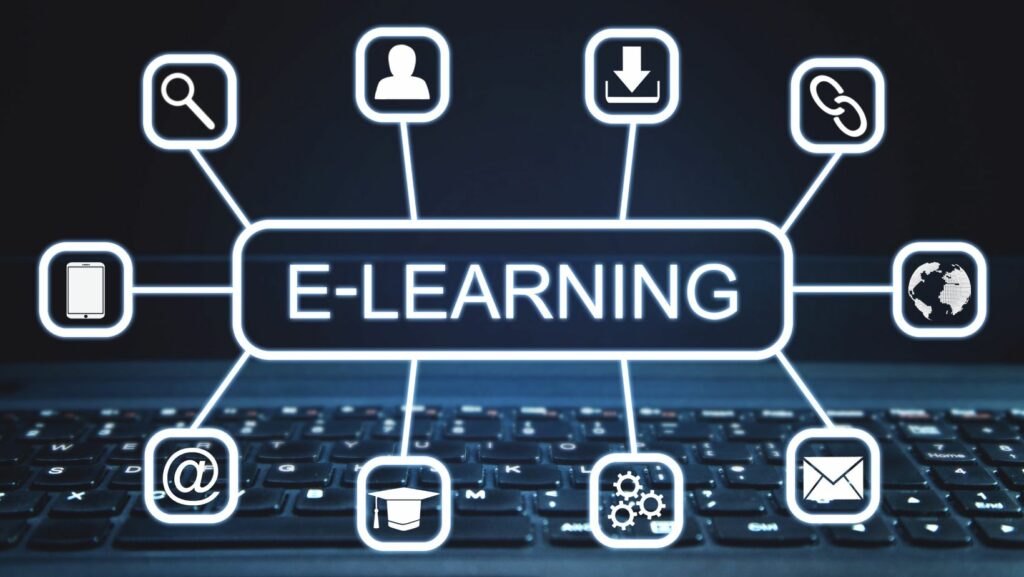In the digital age, online education has surged to the forefront of learning, making it essential for students and educators alike to master primary technology skills. These skills are no longer optional but fundamental for navigating the virtual classrooms, accessing resources, and engaging in effective communication. As education continues to evolve, the gap between technology and learning narrows, highlighting the importance of these skills in achieving academic success.
Primary Technology Skills Are Skills That Are Necessary For Success In Online Education.
The Definition of Primary Technology Skills
Primary technology skills encompass a range of abilities that enable individuals to effectively use digital tools and platforms essential for navigating the online education landscape. These skills include, but are not limited to, basic computer literacy, proficiency in using learning management systems (LMS), familiarity with digital communication tools such as email and discussion forums, and the ability to search for and evaluate online information. They serve as the foundation for both students and educators to manage educational resources, participate in virtual classrooms, and maintain communication with one another.
Why These Skills Are Fundamental
 The necessity of primary technology skills in online education cannot be overstated. They are the bedrock upon which successful online learning is built. First, these skills ensure efficient access to and management of course materials presented on various digital platforms. Without them, students may struggle to keep up with course requirements or miss out on valuable educational content.
The necessity of primary technology skills in online education cannot be overstated. They are the bedrock upon which successful online learning is built. First, these skills ensure efficient access to and management of course materials presented on various digital platforms. Without them, students may struggle to keep up with course requirements or miss out on valuable educational content.
Moreover, solid technology skills contribute to more effective communication within the online learning environment. They enable students and teachers to interact seamlessly, fostering a sense of community and collaboration despite the physical distance. Lastly, in an era where information is abundant, being able to critically evaluate and leverage online resources enhances learning outcomes and helps students develop into autonomous learners.
The Landscape of Online Education
 In the evolving landscape of online education, primary technology skills stand as the bedrock for academic achievement. This digital shift mandates proficiency in navigating virtual environments, where resources, communication, and learning coalesce. Mastery of basic computer literacy, adeptness with learning management systems, and competence in digital communication tools underscore the importance of these skills. They ensure that students and educators can effectively engage with course materials, collaborate despite geographical barriers, and access a plethora of online information. As online education continues to expand, these primary technology skills are not just beneficial but necessary for success, shaping a future where education is accessible, interactive, and adaptable to each learner’s needs.
In the evolving landscape of online education, primary technology skills stand as the bedrock for academic achievement. This digital shift mandates proficiency in navigating virtual environments, where resources, communication, and learning coalesce. Mastery of basic computer literacy, adeptness with learning management systems, and competence in digital communication tools underscore the importance of these skills. They ensure that students and educators can effectively engage with course materials, collaborate despite geographical barriers, and access a plethora of online information. As online education continues to expand, these primary technology skills are not just beneficial but necessary for success, shaping a future where education is accessible, interactive, and adaptable to each learner’s needs.
Essential Primary Technology Skills for Success in Online Education
Primary technology skills are crucial for navigating the complexities of online education. They ensure that learners can access resources, participate in digital classrooms, and achieve academic success from anywhere in the world.
Basic Computer Literacy
Computer literacy forms the foundation for success in online education. It includes understanding how to operate a computer, manage files, and troubleshoot common issues. This skill ensures learners can efficiently access and use the various digital tools and resources required for their studies.
Proficiency in Digital Communication Tools
 Effective communication is pivotal in online education. Proficiency in digital communication tools such as email, forums, and video conferencing platforms enables learners to interact with peers and instructors, facilitating better understanding and collaboration. This skill is indispensable for participating in group projects, discussions, and receiving timely support.
Effective communication is pivotal in online education. Proficiency in digital communication tools such as email, forums, and video conferencing platforms enables learners to interact with peers and instructors, facilitating better understanding and collaboration. This skill is indispensable for participating in group projects, discussions, and receiving timely support.
Understanding how to navigate learning management systems is essential. These platforms are where course materials, assignments, and grades are posted. Familiarity with LMS allows students to track their progress, submit assignments on time, and access learning resources, making it a critical component of online education success.
Overcoming Common Technology Challenges in Online Education
Building on the foundation that primary technology skills are crucial for online education success, learners often face technology-related hurdles. Acknowledging and addressing these challenges is key to leveraging technology for educational achievements. By enhancing basic computer literacy, mastering digital communication tools, and being adept at using learning management systems, students pave the way to effectively overcome these barriers. Each skill not only contributes to a smoother learning experience but also equips students with the necessary competency to navigate the digital landscape of online education confidently.

